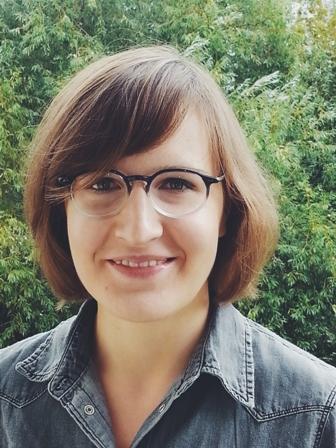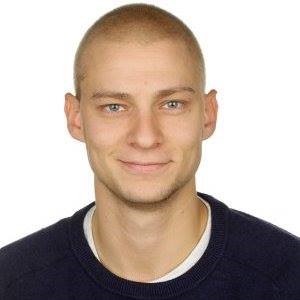The technological developments of the 21 st century bring closer the possibility of an ontological/ethical convergence between the biological and technological. The hypothesis/possibility of creating an artificial organism, like that of a Biological AI, based on both biological and artificial elements, is bringing into question both western traditional ontology and human exceptionalism, by puting under the spotlight the emergent ontology of the posthuman. In such an order of ideas, the anthropocentric paradigm—within whose limits the cultural-historical genealogy is favouring the superiority of man over non-human otherness (also including AI), within the limits of a binary and vertical hierarchy—is deconstructed by the posthumanist philosophy, which recognizes life as an open and constantly evolving frame of multiplicities (without becoming in this case techno-centric). Thus, the general objective of the paper follows the argumentative line of thinking of Francesca Ferrando and Rosi Braidotti’s posthumanist philosophy, in the direction of a post-dualistic, post-anthropocentric and post- hierarchical approach, regarding the essentialist-humanist heritage. The theoretical objective is focused on the rhizomatic and transversal analysis of the multiple assemblages that a Biological AI (as a bio-technical agent) encompasses, in the paradigm of an affirmative ethics of becoming towards a ‘posthuman life’—which reveals ‘multi-layered’ and ‘multi-directional’ structures of life/existence, in the sense, that the ontological-epistemological tradition of man is deconstructed in the direction of an emergent ontology of life, as a plurality of perspectives and not as a bio- centrism specific to anthropocentric values. Questions such as—can we consider a Biological AI as a living entity, from an ontical/ontological point of view, considering that it will have organic materials in its structure? Will such a Biological AI have personhood or not, in cases in which this organic material will be represented by biological neurons?—are considered.
Aura-Elena Schussler (1986), Romania. Associate Lecturer, PhD, Department of Philosophy, Faculty of History and Philosophy, “Babeş-Bolyai” University, Cluj-Napoca, Romania. Dr. Phil (2013) “Babeș-Bolyai” University, Cluj-Napoca, Romania, Faculty of History and Philosophy, Field Philosophy. M. A. in Philosophy, Culture and Communication, “Babes-Bolyai” University, Cluj-Napoca, Romania, (2008-2010). B. A. in Philosophy, “Babes-Bolyai” University, Cluj-Napoca, Romania, Faculty of History and Philosophy, (2005-2008). Since 2018, the founder and organizer of the Transhumanism, Posthumanism, Metahumanism Circle, at “Babes-Bolyai” University, Faculty of History and Philosophy, Cluj-Napoca, Romania.
The author of several articles on topics related to Trans-Posthumanism, religion, sexuality: Artificially “Intelligent Sexbots and Sexual Solipsism—a Posthumanist Ethical Approach”, Journal of Posthuman Studies, Vol. 4, No. 1/2020, ISSN 2472-4513, pp. 25-40. Published by: Penn State University Press. “Transhumanism as a New Techno-Religion and Personal Development: In the Framework of a Future Technological Spirituality”, Journal for the Study of Religions and Ideologies, Vol 19, No 53, Summer 2019, ISSN 1583-0039, pp. 92-106. “Robot Clones—New Perspectives in Robophilosophy and Technoimmortality”, Frontiers of Artificial Intelligence and Applications, Volume 311, Envisioning Robots in Society—Power, Politics, and Public Space, Mark Coeckelbergh, Janina Loh, Michael Funk, Johanna Seibt, Marco Nørskov, (Eds.), IOS Press, Amsterdam, 2018, ISBN, 978-1-61499-930-0 (print), ISBN 978-1-61499-931-7 (online), pp. 259-267; “The Cyberspace Myth and Political Communication, Within the Limits of Netocracy”, Journal for the Study of Religions and Ideologies, Vol. 16, Issue 48, Winter 2017, ISSN 1583-0039, pp. 65-78; “Pornography in Transhumanism—Towards a Sexuality of Singularity”, Postmodern Openings Journal, Lumen Publishing, Iași, Vol. 8, No. 1, June. 2017, e-ISSN: 2069–9387; ISSN–L: 2068–0236, pp. 41-56; “Postmodernism and the Simulacrum of Religion in Universities”, Journal for the Study of Religions and Ideologies, Vol. 15, Issue 45, Winter 2016, ISSN 1583-0039, pp. 76-95.
The author of two books: “The Obscene as Postmodern Value”, Casa Cărții de Știință, Cluj-Napoca, 2013, ISBN 978-606-17-0420-0 (in Romanian) and “Between Body and Mind: About Seduction, Eroticism and Pornography”, Casa Cărţii de Ştiinţă, Cluj-Napoca, 2011, ISBN 978-973-133-922-1 (in Romanian).
In my paper, I will concentrate on the realms of the weird and the grotesque in human- animal relation. Posthumanism, by decentering human position, tends to bring our focus to non-humans understood as active and conscious actors with their own particular point of view. In doing so, posthumanism allows certain weirdness or even grotesque of our condition to come forth (Braidotti 2019). It seems that even if we are inclined to think according to posthumanist terms, the basic difficulty of applying them to our self-knowledge still remains. How can we properly recognize and understand the myriads of different intersections, relations, co-dependences with creatures we usually can’t even see? How can we really acknowledge them as crucial co-creators of our shared world?
I want to ask those questions alongside the Charles Darwin’s Formation of Vegetable Mould Through the Action of Worms. Darwin enthusiastically and consequently blurs the human-animal border, he is always ready to point yet another example of animals’ abilities and to criticize human hybris. Worms however is perhaps his most “proto-posthumanist” work, in which he proves our strict dependency on the earthworms, constantly devouring, digesting and thus fertilizing the mould: “Worms have played a more important part in the history of the world than most persons would at first suppose (Darwin 1882: 308). Earthworms arise to be the closest and most faithful human companions (for example their castings preserve ancient heritage). Darwin mingles high- and low-level orders: thought, culture, heritage and materiality, digestion, defecation. In doing so he evokes the realms of grotesque and weird accompanying our (post-)human being in the world (Ulin 1992, Smith 2009, Philips 2000).
Recently, Donna Haraway’s notion of Chtulucene (Haraway 2016) and Timothy Morton’s analysis of weird in his dark ecology project (Morton 2016), brought forth the aspects of weirdness and strangeness inscribed in human – non-human relations. Their analyses tend to attune to the Darwinian vision. I want to consider whether the realms of weird and grotesque belong to the order of thinking and representing (as transcendental conditions of our knowledge), or the mode of being (as ontological determinants of our experience). In other words, whether we describe our co-dependence with some non-humans as weird, because we are accustomed to think of human as the only active subject, or are we ontologically entwined in multispecies knots or rhizome and so constantly entering relations with strange others.

Justyna Schollenberger: PhD, MA in cultural studies, MA in philosophy, assistant professor at the Institute of Polish Culture, University of Warsaw. Research interests include posthumanist approach to human-animal relation, theories and representations of non-human otherness and narrative dimension of Charles Darwin’s works.
This paper explores the role of fictionality in the field of critical posthumanism. Identifying a set of different appropriations of fictional discourse in writings by, amongst others, Astrida Niemanis, Jane Bennett, Stacy Alaimo, Rebekah Sheldon, and Donna Haraway, the paper asks why scholars united by a common interest in “getting real”, to use Karen Barad’s phrase (1998), often utilize a type of discourse that is defined precisely by not committing itself to reality. What, in other words, do genres and rhetorical devices that deliberately and explicitly make stuff up allow thinkers within critical posthumanism to do that traditional academic styles of writing do not? To answer this question, the article adopts key concepts from fictionality theory (Richard Walsh, Simona Gjerlevsen, and Henrik Skov Nielsen) and utilize these in order to trace three distinct modes through which fictional discourse is put to use in critical posthumanism. These modes are distinguished by fictionalizing non/human entanglements, scientific knowledge, and future societies respectively; yet all of them, the paper argues, fictionalize with the primary aim of imaginatively and affectively grasping phenomena that in principle reside beyond the limits of intelligibility. On this basis, the paper intervenes in recent debates on the modes of argumentation in critical posthumanism, arguing that fictionality – as opposed to “literature”, “fabulation”, “speculation” or “wor(l)ding” – is a particularly attractive tool for attempts to move beyond anthropocentric regimes of truth.

Tobias Skiveren is an assistant professor at the School of Communication and Culture, Aarhus University. He has written extensively on the intersection of literary studies, new materialism, affect theory, and critical posthumanism and his work has appeared in venues like Theory, Culture & Society (forthcoming), Criticism. A Quarterly for Literature and the Arts (forthcoming), and Matter. A Journal for New Materialist Research. He is also the author of several monographs on contemporary Danish literature, including Den materielle drejning. Natur teknologi og krop i (nyere) dansk litteratur (2016, co-written with Martin Gregersen) and Kødets Poiesis. Kropumulige kroppe i ny dansk litteratur (2020).
Posthumanism, like postmodernism, implies a before and after, and so the term has the shape of a narrative, a story of significant change. In this paper, I highlight how this narrative kernel connects posthumanism to a broader set of science-adjacent discourses including the Anthropocene, the Singularity, and the Noosphere. After exploring how posthumanism relates to this set, I identify the “Epic of Evolution”(/“Big History”) and the “Great Transition” as key attempts to unfold this same narrative dimension across two different timescales: the deep time of evolutionary science and the compressed time of the twentieth century’s “Great Acceleration.” I propose that taking such a panoramic view of six discourses—posthumanism, the Anthropocene, the Singularity, the Noosphere, the evolutionary epic, and the Great Transition— allows us recognize them as fragments of an emerging “grand narrative” responsive to the natural sciences, technological development, and the ecological crisis. Finally, I suggest that posthumanism’s role in this grand narrative, which may or may not coalesce further, is to critique and balance it: i.e. to keep the grand narrative of globalizing humankind from lapsing into the extremes of self-congratulation and self-flagellation.